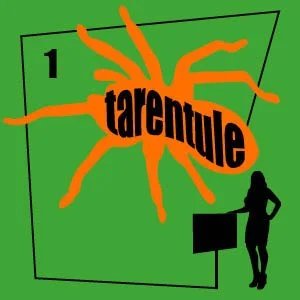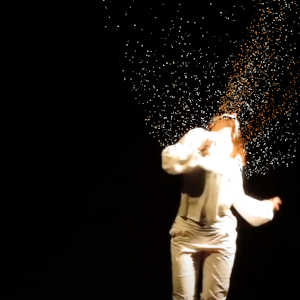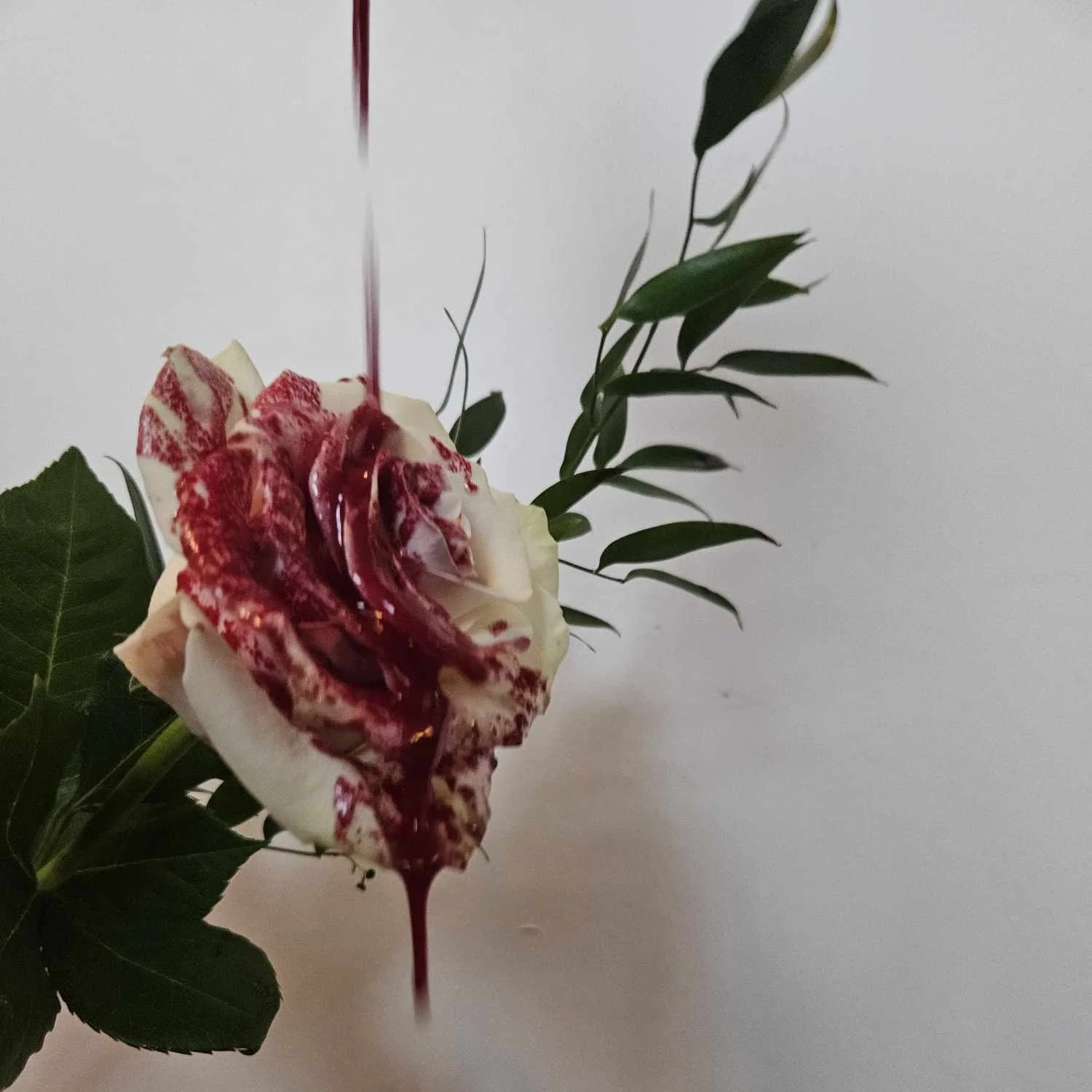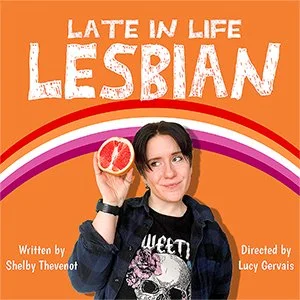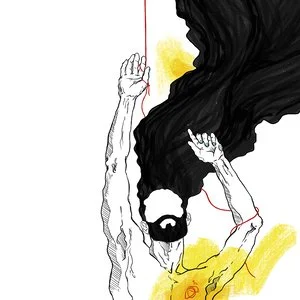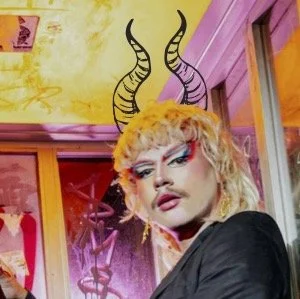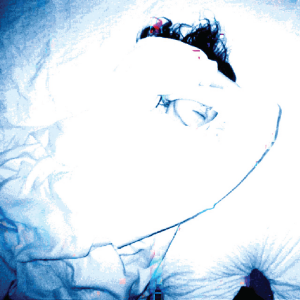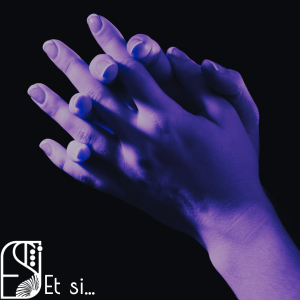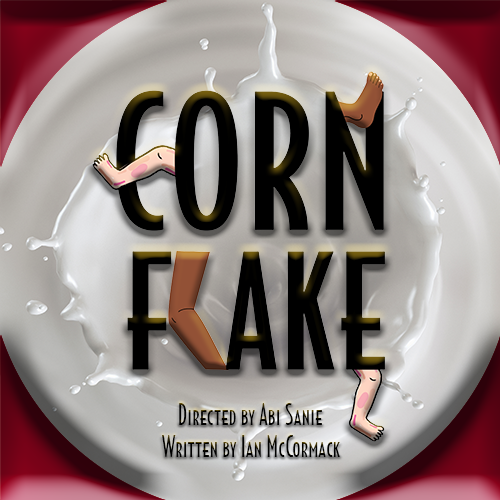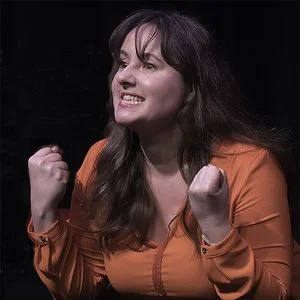Discussing Mental Health at FringeMTL
Even when money is hard to come by, we still find ourselves paying to see movies, read books, watch videos, and see theatre. Even when we’re in survival mode, we yearn to witness others’ stories. Whether it’s a comfort movie/show/game that we’ve seen several times or a new piece of media - there’s a wave of catharsis that washes over us when a writer/director/actor/artist really ‘gets’ a situation or emotion we’ve experienced.
Fringe Knows we’re hurting and wants us to heal together
Picture this: It’s May 2024. You’ve had a long day. You didn’t get enough sleep and everything today seemed to be more difficult than it needed to be. Finally, at the end of your long day, you get the evening to do as you please. What do you choose to do?
Scroll on your phone?
Watch a movie or TV show?
Read a book?
Play a game?
If you’re like me and turn to one of the entertainment options to end your long days, I feel you.
Some will say it’s to occupy and distract ourselves, which is sometimes true. Others will say it’s to escape and feel like we’re somewhere else. Also sometimes true. But what if there’s another reason we turn to entertainment?
What if it’s actually to feel connected to other people?
Think about it.
Even when money is hard to come by, we still find ourselves paying to see movies, read books, watch videos, and see theatre. Even when we’re in survival mode, we yearn to witness others’ stories. Whether it’s a comfort movie/show/game that we’ve seen several times or a new piece of media - there’s a wave of catharsis that washes over us when a writer/director/actor/artist really ‘gets’ a situation or emotion we’ve experienced. This can feel like a relief and once we’ve felt it, we for sure want to have that feeling again.
Especially since we’ve been through a lot in the last few years - the global pandemic, several genocides, Taylor Swift concerts, the ‘Black Lives Matter’ movement, mass shootings, teacher and healthcare strikes, the housing crisis, Barbenheimer, war, missing and murdered indigenous folks, the fantasy parent apology trope, earthquakes, the ‘Me Too’ movement, the solar eclipse, laws that perpetuate violence... The list goes on. We have witnessed these events in real time - whether it was in person or on a screen, we have been, and continue to be, inundated with images of death, despair, and ‘did you know you probably have ADHD?’
Just thinking about the sheer volume of collective trauma makes my head spin. On a daily basis we have so much to think about, so many systemic barriers to break down, so much violence to protect ourselves from, so many losses to grieve.
We’re walking around all day trying to handle everything, no wonder we’re really fucking tired. We haven’t had a break to be able to rest, not to mention time to process and reconnect with others. It’s been a major benefit of the pandemic that people (and institutions) are taking mental health seriously and more people of all ages are going to therapy. For working on yourself and the way you relate to the world around you, therapy can be a huge help. However, the individual level is only one piece of the giant puzzle. As we’ve learned time and time again, we can’t do it all alone. Especially when the majority of the trauma is from the actions of others. We need avenues to heal while we’re around other people.
Then you take a look at your calendar and realize June is coming fast.
Enter FringeMTL 2024.
Since I’ve been in Montreal, my favorite festival is the Fringe. Every year, I see something new and exciting, leaving me feeling inspired and touched. When Fringe shows were posted online, I couldn’t wait! As I eagerly clicked from show description to show description, I started noticing a theme emerging - a large number of shows were about mental health or touched on mental health needs. Perhaps it’s a coincidence, but I seriously doubt it. If “art imitates life,” then this year’s Fringe knows we’re struggling and the artists are trying to do something about it. They’ve seen our attempts to digest a buffet of bad news at every corner, but they know that we’re so close to everything happening that we can’t safely pause to chew on it.
What if theatre is a place where we can get a little bit of distance?
That dark and quiet Black Box, where it feels like things stop for a moment and we can coexist.
I reached out to the hive of this year’s Fringe artists, curious about ‘why do we need theatre about mental health now?’ With their responses, I compiled a(n incomplete) list of the shows this year that explore mental health, which you can find at the end of this article. Don’t worry, there will still be comedy shows and dancing and abstract art, but you can expect to see several artists bearing “their entire down-to-the-earth feelings of rage, tragedy, trauma…” on the stage. Maybe, just maybe, their stories are what you need to feel seen, understood, and not alone.
While the show’s been in production for 3 years, Rachel Renaud felt like this year was the right year to bring Love The Sinner to the Fringe, against the backdrop of a shocking number of laws being passed to oppress and reject trans people. When asked about why a show dealing with several mental health adjacent topics - religious trauma, self identity, and difficult relationships - was being portrayed the same year as other shows in the same vein, Renaud clarified, “It’s not about mental health. It’s almost like mental health is the casualty of this whole fucked up world… [Love The Sinner] is about coming to find yourself in a world that doesn’t allow you to be yourself.” The show follows a teen couple in catholic school as they discover their love, their queer identities, and the lasting effects of transphobia. As we spoke about why this story had to be on the stage instead of another medium, like film or the written word, Rachel’s eyes lit up and they sat forward.
“I think also being in a theater space when we’re talking about mental health, it invites you to actually be able to experience it. It’s like, ‘I’m experiencing it, so you can too, and we’re in this room and we’re going to do it together! And we will be okay after.’ You’re not in your bedroom watching a film, you’re not gonna be alone afterwards. There are gonna be people there for you.”
Because Rachel and their cast/crew knew the material would be heavy, they’ve made sure to have a counselor and active listener present at each performance. The counselor supports the cast before, during, and after the show through emotional regulation techniques. The active listener is there for the audience, should they need someone to talk to. This creates an extra layer of compassion for the big emotions that can surface. It’s natural that we have mixed feelings in this confusing world and this show wants us to welcome those feelings - for ourselves and for others.
After having several realizations in her own therapy journey, Kerrin-Lee Whyte, the playwright of Attached, extrapolated that this year might have more mental health themes because of “...the normalization of therapy - a lot of people are doing the work. Everyone’s like, ‘I’m going to therapy because my ancestors didn’t.’” Whyte had another reason to put on their show this year: she wanted Montreal audience members to think critically about the way we treat each other. They reflected on how many of us have difficult relationships in our lives, and how those can be compounded by unhealed hurts from the past. “Defense mechanisms are like an emotional wall. It can get you through difficult situations, but it puts you through difficult situations even when you don’t have to.” Her show uses attachment theory to look at relationships from different perspectives. Whyte hopes audiences leave the show, asking themselves, “What habits have we developed over time? And how they can play out, later in life…” Though Kerrin-Lee shares stories as a comedian, and works as an actor, she chose theatre as the medium for this exploration of mental health for the collective experience.
“...to watch something and relate to a character or a moment and watching it unfold while you’re removed is really powerful. Especially because you’re removed, so it’s a safe place to feel your feelings. You’re not the one in that situation. Like, you’re just watching it. The shared energy in a space, like live theatre versus a movie, we’re all humans, if there’s tension in the scene you’re gonna automatically feel that. I think it’s a really beautiful part of humanity to pick up on the vibes - the energy in the room - and navigate it together.”
If you're a theatergoer, you know what she's talking about. Whether it's the contagious tears during a touching scene, or the collective gasp when a special effect has the perfect timing, or the thunderous applause that makes us get out of our seats at the end of a great show, we don't quite get that feeling in the same way anywhere else. We want to tell other people about the show we saw so they can experience it too. It's even rarer that we'll see a piece of theatre that changes the way we live, but it has happened that the right piece will present itself at just the time we need it.
Theatre has been such a huge influence in my life that I made it a goal of mine to share the benefits of theatre arts far and wide. As a drama therapist, I work with people who struggle with anxiety, perfectionism, difficulty regulating emotions, and/or trauma. I chose to become a therapist that uses the creative arts (art, dance/movement, drama, music) because you’re no longer constrained to using words. While spoken or written language helps us communicate, we don't always have the words to convey our experience. There can be way too much pressure in our everyday life to say exactly what we mean - in theatre and the arts, you can express yourself through colors, movement, stories, sound, and metaphors without having to censor anything.
Another Fringe artist, Marjolayne Auger, the choreographer and co-director of Les échos de Katerina et Danse de la mort, echoed that it’s not the same to understand a concept through words as it is to portray it in a performance. Together, these two pieces (Danse de la mort was written by Mehdi Hamzavi Mehr) explore how hard it is to leave an abusive situation and the aftershock of living in a toxic environment. “I was investigating these themes [of the consequence of violence] during my master’s… I didn’t use these elements in my final [master’s thesis], but they were still there and I wanted to revisit them.” After a long process, her two pieces are being presented together at Fringe. “I have the faith that presenting these themes through two different mediums might help people to go through a journey. With images, then with words. Afterwards, I will be very curious to know how the public will receive that. It’s still a laboratory for me.”
Similarly, each and every one of us are a work in progress. We're doing the best that we can to survive, process, and be present with one another. It isn't easy and it won't happen if we don't stop to witness the stories around us.
So, I leave you with these ponderings:
What kind of story do you need to hear?
How can we learn from each others’ stories?
What if we consciously choose theatre to be one of the ways we connect?
A(n incomplete) guide to help you figure out what to see
Show Title: 1 Tarantule
Themes: Toxic relationships, abuse, sexual violence presented through a metaphor.
Who should see it: People who have a loved one that’s experienced sexual violence or abuse, allies hoping to be supportive, survivors that would like to see a survival story portrayed with some distance.
Show Title: Les échos de Katerina et Danse de la mort
Themes: Toxic relationships, abuse, trauma, radicalization, mental health.
Who should see it: People curious about trauma, radicalization, mental health, choosing the right thing to do, and those struggling to connect with someone who’s struggling to leave an abusive situation.
Show Title: Attached
Themes: Navigating relationships, friendships, and living with yourself.
Who should see it: “Anyone who’s afraid of feeling too much, anyone who’s been in a difficult relationship, and anyone who’s living with imposter syndrome or anxiety”
Show Title: Love the Sinner
Themes: Teen love, coming out as trans, religion, finding yourself, accountability.
Who should see it: Anyone who’s on the fence about queer or trans people, anyone who is struggling to be themselves as a queer or trans person, LGBTQ+ community.
Show Title: Late-in-Life Lesbian
Themes: Sexuality, gender, infertility, societal pressure.
Who should see it: Late-bloomer lesbians, anyone is questioning their gender or sexuality, women or femmes who are glad to see a show without their partner.
Show Title: TRANSCENDANCE
Themes: Queer lives, questioning one’s identity, mental health journeys.
Who should see it: Anyone struggling to accept themselves, anyone needing their queer story heard.
Show Title: 666!
Themes: Demonization of queer people, feeling alienated, identity.
Who should see it: People who feel like they've been alienated or demonized for their identity, queer people unsure about their future, straight allies.
Show Title: désolÉ not sorry
Themes: Mourning, madness, non-binarity, non-bipedalism, post-sex, prose, radicality, solitude, transgressions, trauma.
Show Title: The List: A Traumady About Probiotic Masculinity
Themes: Masculinity in today’s society, self awareness, accountability.
Who should see it: Masculine folks, men, people who have lots of questions about masculinity.
Show Title: Doxxiqqq
Themes: Suicide, mourning, isolation, fame, loneliness, societal expectations.
Show Title: La tyrannie du bonheur - Essai théâtral sur l'Amour
Themes: Societal pressure, social norms, love.
Show Title: Cornflake
Themes: Conformity, societal pressure, overcoming ableism, accepting the authentic version of ourselves, overcoming homophobia and transphobia.
Who should see it: People who identify as queer and/or neurodivergent, people that don’t understand why being queer and neurodivergent is hard, anyone curious to see a different perspective on life.
Show Title: Les périples périlleux de Post-It Paul
Themes: Near death experiences, storytelling, intercultural identity, love, loss.
Who should see it: Thinkers, witnesses, people who love a good story.
Show Title: You’re Good for nothing…I’ll milk the cow myself
Themes: Immigration stories, intergenerational experiences, loss.
Who should see it: Mothers, daughters, older folks looking to have part of their story told, feminists, immigrants.
Forget The Box’s FringeMTL 2024 reviews are COMING SOON!



